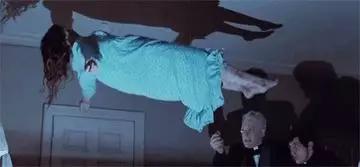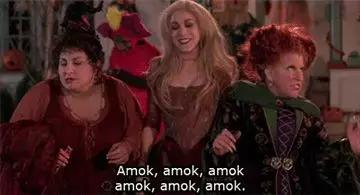关于【show是什么意思】,show什么意思,今天乾乾小编给您分享一下,如果对您有所帮助别忘了关注本站哦。
内容导航:1、揭秘22句英语俚语的起源,有些真相快让我吐了2、show是什么意思:show什么意思1、揭秘22句英语俚语的起源,有些真相快让我吐了
英语口语·吉米老师说
吉米老师分享的这22句英语俚语有趣的起源,弄懂起源更容易记住哦。
英语·俚语起源
1."A sight for sore eyes"
“赏心悦目”
Meaning:Seeing someone that pleasures you or makes you happy on a bad day
含义:看见某个赏心悦目的人,他一出现,就让你心情好
Origin:Writer Jonathan Swift, probably most famous for Gulliver's Travels, used the phrase in the 1700s. The quote: "the sight for you is good for sore eyes" was found in a work titled A Complete Collection of Genteel and Ingenious Conversation.
起源:因《格列佛游记》而闻名的作家乔纳森 · 斯威夫特,在18世纪时使用了这个短语。他在书籍《风雅与机智会话全集》发明了这个俚语“the sight for you is good for sore eyes 你的出现让人赏心悦目” 。
2. "Bite the bullet"
“咬紧牙关”

Meaning:Toacceptsomethingdifficultorpainful.
含义:不得不忍受某些困难或痛苦
Origin:Sometime between the 18th and 19th century, the expression originated from outdated medical practices, especially for soldiers. Back in the day, to distract patients (since anesthesia was not a thing yet), doctors would have them bite down on a literal bullet.
来源:在18至19世纪,这个词组起源于那时落后的医疗手术,尤其在战场上。在当时,为了分散病人的注意力(因为麻醉术还没发明) ,医生会让他们在手术时咬一颗真正的子弹。
3. "Hands down"
“轻而易举”

Meaning:When a team or a player of any sport wins something with very little effort/easily
含义:形容在比赛中轻而易举地取胜
Origin:Dating back to the 19th century, the phrase refers to horse jockeys loosening their grip on the reins when their horse had a strong lead in a race.
起源:这个短语可以追溯到19世纪,当骑手的马在比赛中遥遥领先时,骑手会松开缰绳、把手放下来。
4. "Crocodile tears"
鳄鱼的眼泪
Meaning:To pretend a sorrow that one doesn’t in fact feel, to create a hypocritical show of emotion.
含义:装作很悲伤的样子,其实是虚情假意。
Origin:This phrase originated from the belief that crocodiles cry but the tears produced by crocodiles are not emotionally driven.
起源:这个俚语源自这个印象,即鳄鱼会哭,但鳄鱼流的眼泪没有感情。
5. "Cat got your tongue?"
“哑口无言,无言以对”

Meaning:When you or someone else cannot speak verbally.Usually when a secret got told, or something surprising happened.
含义:当某个秘密被泄露,或发生了惊讶的事情,你说不出话来。
Origin:An example of an expression being lost to time, but there are some theories.
起源:这个俚语的起源很远久了,关于它的最初起源众说纷纭。
With the least clear origins of the bunch on this list, some believe it is related to ancient Egyptians cutting out tongues and feeding them to cats, while others believe it originated from flogging crew members aboard vessels.
在今天的这22个俚语中,它的起源最不明确。有些人认为这与古埃及人割下舌头喂猫有关,而另一些人则认为它起源于船上对船员的鞭打。
6. "Caught red-handed"
”当场抓获”
Meaning:To be caught in the act of committing a crime, with the evidence there for all to see.
含义:在犯罪当场被抓获,证据一目了然
Origin:A saying with origins dating back to 15th-century Scotland. Caught red-handed is referred to being found with blood on your hands after they have committed a crime. Pretty simple.
起源:起源于15世纪苏格兰的一种说法。当场抓获指的是在犯罪后,犯人的手上沾满了鲜血。
7. "Waking up on the wrong side of the bed"
“有起床气”

Meaning:To be in a particularly and persistently irritable, unhappy, or grouchy mood or state, especially when it is not in line with one's normal disposition.
含义:形容某人的心情处于持续的易怒和不高兴的状态,尤其当某人一反常态时
Origin:A Roman superstition... positive forces await on the literal right side of the bed. However, if you get out of bed on the left side, that's some bad energy right there.
起源:来自于一个罗马迷信传说。罗马人正面力量在床的右侧。如果你起床时在床的左侧,就会有一些负面力量。
8. "Running Amok"
发狂、疯狂

Meaning:to behave without control in a wild or dangerous manner
含义:肆无忌惮做出危险动作,意译为发狂、疯狂。
Origin:The word "amok" comes from the Malay word "mengamok," which means to make a furious and desperate charge. Captain Cook used the phrase to describe the behavior of Malay tribesmen.
起源: amok 这个词来自马来语“ mengamok”,意思是进行愤怒的、不顾一切的冲锋。探险家库克船长用这个短语来形容马来部落人的行为。
9. "Can't hold a candle"
比不上

Meaning: to not be as good as the person or thing mentioned:
含义:表示不如上一个好
Origin:This one dates back to the 17th century, and its meaning is related to one's incompetence. The saying came from talking about an apprentice who was not even skillful enough to hold a candle for his master. In short, they are worthless as an apprentice.
起源:这个词可以追溯到17世纪,它表示某人很无能。源于说某个学徒他甚至都不能熟练地为他的师傅点蜡烛,也就是说,作为一个学徒,他毫无价值。
10. "Break the ice"
打破僵局
Meaning:say something in a silent moment.
含义:打破安静的氛围
Origin:Dating back to the 17th century, writer Samuel Butler used the expression in the poem Hudibras which read: "...At last broke silence, and the Ice."
起源:这个说法可以追溯到17世纪,作家塞缪尔 · 巴特勒在他的诗歌《赫迪布拉斯》中使用了这样一句话: “ ...At last broke silence, and the Ice 最终打破了沉默和冰冻。”
11. "When in Rome, do as the Romans do"
入乡随俗
Meaning:when you are visiting another place, you should follow the customs of the people in that place:
含义:在哪个地方就遵守哪个地方的风俗习惯。
Origin:This one has gone through a plethora of iterations. As far as the English version, the saying as we know it is found in Interesting Letters of Pope Clement XIV, which read, "...that when we are at Rome, we should do as the Romans do."
起源:这个俚语经历了很多迭代。就英文版本而言,这句话最早出现在克雷芒十四世地信中,它是这样写的: “ ... ... 当我们在罗马时,我们应该像罗马人那样做。”
12. "Rub the wrong way"
惹恼或激怒某人

Meaning:To annoy or irritate somebody. The saying refers to rubbing an animal/cats fur the wrong way, but means to piss somebody off.
含义:形容惹恼或激怒某人。字面意思是指以错误的方式摩挲猫的皮毛,实际是指惹恼某人。
Origin:Meow. The origins of this phrase refers to cats, specifically rubbing their fur in the wrong direction as written in Mary Hughes' Aunt Mary's Tales in 1819. While the origins of this one are debated, the Americanized version of this expression no doubt came from Mary Hughes.
起源:喵。这个俚语最早出现在玛丽休斯的《玛丽阿姨的故事》,指当你用错误地方式摩挲猫的皮毛时。虽然这个俚语的起源有争议,但毫无疑问,这个俚语的美国版来自玛丽 · 休斯。
13. "Barking up the wrong tree"
”找错人了”
Meaning:Picking the wrong person, the most unlikely person, to do something.
含义:找了错误的、最不应该找的人,去做某事
Origin:Dating back to the 1800s, this common phrase relates to hunting with packs of dogs. Not too much to this one, if a dog was barking up the wrong base of the tree, odds are the prey escaped or the doggo was just incorrect.
起源:这个俚语可追溯到19世纪,与带上成群结队的狗来打猎有关。如果一条狗在对着错误的树吠叫,可能是猎物逃跑了,也可能是狗狗错了。
14. "Paint the town red"
狂欢作乐

Meaning: To engage in a wild spree.
含义:从事狂热的活动。
Origin:A lot of controversy about the origins of this one. But people in the UK believe it references the Marquis of Waterford and friends in 1837, who went on a night of drinking through the English town of Melton Mowbray.
起源:关于它的起源有很多争议。但是英国人认为它来源于1837年的沃特福德侯爵和他的朋友们,当时他们在英国小镇梅尔顿莫布雷喝了一夜酒。
15. "Bury the hatchet"
达成和解

Meaning: to cease hostilities and become reconciled
含义:停止敌对行动,达成和解
Origin:There is a Native American origin for this one. When two tribes decided to settle their differences and live in harmony, the chief of each tribe buried a war hatchet in the ground to signify their agreement.
起源:起源于美洲原住民部落,当两个部落决定化解分歧、和睦共处时,双方部落的首领都埋一把战斧在地下以示同意。
16. "Cold feet"
怯场

Meaning: Nervousness or anxiety felt before one attempts to do something.
含义:在尝试做某事之前感到紧张或焦虑。
Origin:One of the earliest pieces of evidence for the phrase "cold feet" comes from poet Stephen Crane. In 1896, he released Maggie: A Girl of the Streets. In it, Crane wrote, "I knew this was the way it would be. They got cold feet."
起源:这个短语最早的起源之一来自诗人斯蒂芬 · 克莱恩。1896年,他发行了《玛吉: 街头女孩》。克兰在信中写道: “我就知道事情会是这样。他们害怕了。”
17. "Show your true colors"
“露出你的真面目”

Meaning: To reveal what one truly believes, thinks, or wants
含义:揭示自己真正的信念、想法或愿望
Origin:Lowering your colors aboard a ship to hide your nation's flag is a strategic move. In a naval battle, if you hoist your flag high after hiding it, you are showing your true colors.
起源:在航船中船手会降低旗帜以隐藏国旗。因为在海战中,如果你把国旗藏起来后高高升起,那么你就暴露了你的真面目。
18. "Put a sock in it"
闭上你的臭嘴
Meaning:To stop talking. Often used as an imperative.
含义:停止说话。常常作为命令语使用。
Origin:I wish I had a whacky story about a man shoving a sock puppet into the mouth of another man, but this one is pretty basic. It is simply British slang used in the 20th century to request a talkative or noisy person simply "shut their lips."
起源:我原以为是一个男人把袜子塞进另一个男人嘴里的怪诞故事,但这个故事很平淡。这是20世纪英国的俚语,用来要求一个健谈或者爱吵闹的人闭嘴。
19. "Steal your thunder"
抢你的风头
Meaning: To steal one's idea, plan, or intellectual property and use it for profit or some benefit.
含义:盗窃窃取某人的想法、计划或知识产权,并将其用于牟利或某种利益。
Origin:This idiom might have the funniest origin, and came from the 18th century. Dramatist John Dennis created an idea for a thunder machine for his play Appius and Virginia, but it didn't work.
起源:这个俚语的起源可能是最有趣的一个,18世纪剧作家约翰 · 丹尼斯为他的戏剧《阿皮乌斯和弗吉尼亚》构思了一个雷电机器的想法,但没有实现。
Fast-forward to the little-known production Macbeth, and alas, his idea was stolen for the play's production.
后来在脍炙人口的戏剧《麦克白》中 ,他的创意被盗用在这部戏剧中。
20. "Spill the beans"
说漏嘴
Meaning: To reveal something that was meant to be a secret.
含义:泄露秘密
Origin:Like most on here, it is pretty controversial where exactly the phrase originated, but one explanation dates back to ancient Greece. People would vote anonymously using white and black beans as a simple "yay" or "nay."
起源:和大多数俚语一样,这个短语到底起源于哪里,颇具争议,但有一种说法认为它源自于古希腊,人们匿名投票,用白豆和黑豆表示“好 ”或“ 不好”。
21. "Rule of thumb"
经验法则
Meaning:A rule of thumb is a rule or principle that you follow which is not based on exact calculations, but rather on experience.
含义:经验法则是指你遵循的规则或原则,它不是基于精确的计算,而是基于经验。
Origin:The origin is actually uncertain, but the earliest record is by Scottish preacher James Durham: "Many profest Christians are like to foolish builders, who build by guess, and by rule of thumb (as we use to speak), and not by Square and Rule."
起源:它的起源实际上不确定,但最早的记录来自苏格兰传教士詹姆斯 · 达勒姆写的: “许多最虔诚的基督徒喜欢愚蠢的建造者,他们靠猜测和经验法则建造,而不是靠方块和规则。”
22. "By and large"
总的来说

Meaning:when everything about a situation is considered together:
含义:当所有的情况都被考虑在内时。
Origin:Anyway, the saying "by and large" actually originated from sailing lingo. Specifically, when the wind is blowing from some compass point behind a ship's direction of travel then it is said to be "large."
起源:不管怎么说,这个说法实际上起源于一个航海术语。当风从指南针指向船只行进方向后面时,就被称为“大”。
点个“赞”,分享给朋友!
2、show是什么意思:show什么意思
简要回答
show作名词时意为演出;歌舞表演;(电视或广播)节目;展览;展览会,作动词时意为表明;证明;给…看;出示;展示;(通过示范)教,解说;演示。
show是一个英文单词,我们经常都可以看到这个单词,比如说TV show,那么你知道这是什么意思吗?下面就来说说show是什么意思。
详细内容
show英 [ʃəʊ] 美 [ʃoʊ] v.表明;证明;给…看;出示;展示;(通过示范)教,解说;演示n.演出;歌舞表演;(电视或广播)节目;展览;展览会第三人称单数: shows现在分词: showing过去式: showed过去分词: shown showed
同义词辨析appear v. 出现,亮相强调进入视野为人所见,也指公开露面为公众所看见。A warship appeared near the harbour.一艘军舰出现在港口附近。arise v. 出现多指问题、困境等出现。A crisis has arisen in the Foreign Office.外交部出现了危机。emerge v. 出现,显露指从某个掩蔽处出现或摆脱遮挡物而被看见,强调缓缓出现的过程,常后接介词 from。When we look a bit deeper, problems begin to emerge.我们探讨得再深入一点就发现,问题开始出现了。loom v. 隐约出现尤指轮廓不清、令人惊恐地隐现。An island loomed on the horizon.一座岛屿赫然出现在地平线上。show v. 显现,显出语气较强,强调明显地表现出来。Spain's economy began to show signs of recovery.西班牙的经济开始显露出复苏的迹象。
双语例句Research shows that a high-fibre diet may protect you from bowel cancer 研究表明高纤维饮食可预防肠癌。Figure 4.1 shows the respiratory system 图表4.1所示为呼吸系统。Cut out this article and show it to your bank manager 将这篇文章剪下来,拿给你的银行经理看。Let me show you to my study 我带你去我的书房。Claire showed us how to make a chocolate roulade 克莱尔给我们示范了如何做巧克力卷。He showed his teeth in a humourless grin 他一本正经地咧嘴笑了笑。Elsie has had enough time to show her gratitude 埃尔茜有足够的时间来表达她的感激之情。
声明:本篇经验系酷知网「www.coozhi.com」原创,转载请注明出处。
本文关键词:playshow什么意思,show up什么意思,shown什么意思,showed什么意思,shower什么意思。这就是关于《show是什么意思,show什么意思(揭秘22句英语俚语的起源)》的所有内容,希望对您能有所帮助!